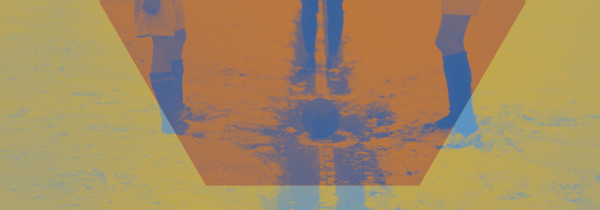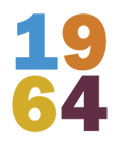 |
 |
||||||||||||||


Winter League
FOR A JEWISH TEEN GROWING UP IN LONDON, 1964 GOT OFF TO A ROUGH START—AS JONATHAN WILSON RECOUNTS IN THIS EXCERPT FROM HIS NEW BOOK, KICK AND RUN: MEMOIR WITH SOCCER BALL
In the long winter of 1964, my father had a nervous breakdown, possibly induced by side effects of the drugs he was taking for his heart, which included digitalis, a product of that beautiful life-extending but poisonous flower, the foxglove. My brothers were both out of the house. Stephen, in his second year of medical school at the Royal Free Hospital, lived in “digs” while Geoffrey, who had already begun a successful career in real estate, was married and living in his own house. One freezing night, our pipes lagged with rags to prevent them from bursting, my father surged into my bedroom and dragged me out. He was screaming “Fire! Fire!” as he pulled me down the stairs and out into the empty street. His strength, so attenuated in the previous few years, was superhuman, his grip on my arm vise-like. I stood shivering in my pajamas. My father continued to scream. He saw flames, but there was no fire.
Neighbors began to open their windows and yell at him. My mother stood in her nightdress at the door to our house. She seemed torn between coming to fetch us from the road and calling for an ambulance. Then she disappeared, and through the curtains of our front room I saw her pick up the phone. Eventually both the police and an ambulance arrived. My father, whose hallucination had abated, sat silent in our kitchen. A detective in a heavy overcoat tried as best he could to take control of a situation that had already subsided. My father was put in the back of the ambulance and taken away. He did not speak again for many weeks, maybe months.
While my father was in the mental hospital, I lived alone with my mother. On Tuesdays and Thursdays after she came home from work, she and I took a bus to the hospital, a Victorian edifice of dirty cream corridors and squeaky floors, where we attended the meager visiting hours. It was dark when we set out, and darker still, it seemed to me, when we entered the large room with moth-eaten furniture and heavy brown drapes where my father sat waiting for us in striped pajamas and a dressing gown. My mother spoke to him, and I imagine that I did too, but he never replied. On the table in front of him, one of the nurses had placed the product of his labors in occupational therapy: a leather book cover with a torn strip for a bookmark.
It was around this time that I started going to soccer matches more frequently on my own. I had been traveling by myself to occasional midweek afternoon matches at Wembley since Halloween 1960 when, ten years old and wearing a white rosette, I had stood deliriously happy in the pouring rain with eighty thousand other fans while England rolled over a supposedly invincible Spain, featuring the great Alfred Di Stéfano, 4–2, but this was different. Because of my father’s illness, there were no longer any restrictions on my Saturday activities. My mother had too much on her mind to worry about my desecrations of the Sabbath, and in any case, she was not really a religious woman, only an observant one.
The first Saturday match that I traveled to alone turned out to be a disaster. It was early December, and the game was also a first home appearance for Spurs’ (Tottenham Hotspur Football Club’s) new acquisition, the skillful Scottish striker Alan Gilzean. I was excited to see him in action, but I didn’t have a ticket, and the game, against Everton, was sold out. It had taken me close to two hours to reach the stadium, by tube and bus. On the bus back to Manor House station, two young thugs crept in behind me on the upper deck. I sat with my eyes down, staring at the litter-strewn ridged floor of the upper deck. Any turn or flinch could have led to trouble.
When, in the evening, I arrived home weary and disappointed, I removed my blue anorak to discover that the word JEW had been written on the back with some kind of marker. My mother wasn’t home. I hung up my coat in the closet under the stairs. I left it there all day Sunday, but when I went to get it on Monday morning, it was gone. My mother had taken it to the cleaners. The coat came back a few days later, its stark message expunged. My mother never said a word about it, and neither did I.
Eventually, after many weeks, my father came home. He sat in the kitchen without removing his coat or hat. He was full of shame and remorse. I think he saw his nervous breakdown as the straw that broke his wife’s back. He did manage to hug me, and then he said to my mother, “I’m sorry, Doris.” I wanted him to take that apology back, but he couldn’t. I was at least happy that he could speak again.
Jonathan Wilson is Fletcher Professor of Rhetoric and Debate and director of the Center for the Humanities at Tufts. © Jonathan Wilson 2013, extract from Kick and Run, Memoir With Soccer Ball (Bloomsbury Reader), available in paperback and as an ebook.